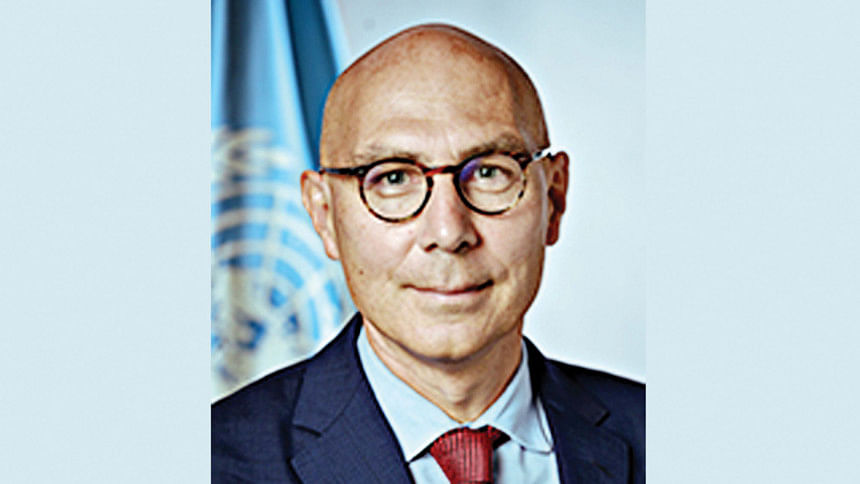UN voices worry over opposition activists’ arrests
United Nations High Commissioner for Human Rights Volker Türk, expressed concerns about the detention of opposition leaders and activists and allegations that the justice system is being used to “harass” human rights advocates, journalists, and civil society leaders.
“In Bangladesh, I am concerned that thousands of opposition party leaders and activists remain in detention, and that a number of deaths in custody have been reported since October”, Türk said on Sunday, while outlining the human rights situations across the world at the 55th session of the Human Rights Council.
He said, “While I condemn any form of political violence, I urge a swift review of all these cases, with a view to their release, to encourage political dialogue and reconciliation.”
About the situation in Bangladesh, Türk further said, “I continue to be concerned by allegations that the justice system is being used to harass human rights advocates, journalists, and civil society leaders. I encourage investigation into alleged enforced disappearances and extrajudicial killings, in line with international standards.”
While talking about the situation in the world, he said, “Around the world, 55 conflicts are flaring. Widespread violations of international humanitarian and human rights law are generating devastating impacts on millions of civilians. Displacement and humanitarian crises have already reached an unprecedented scale.”
He said, “With elections in over 60 countries – where nearly half of the world’s people live — 2024 could be a landmark for democratic principles. Demos, the people; kratos, rule: a meaningful, safe, and fully participatory electoral process is key to ensuring that governance serves the people’s human rights.”
“But democracy is also broader than the singular electoral moment every three, four or five years. It lives – or dies – with the people’s right to participate in the conduct of public affairs, constantly,” Türk added.
In his speech, he also said that good governance requires constant oversight and accountability, via independent checks and balances to the exercise of power.
Corruption is also a major challenge to democracy and rights as it diverts decision-making and public resources from the common good to private benefit – thus, it empties the institutions of the state and deprives people who are poor and dispossessed of their rights.
“In many parts of the world, many politicians are deliberately inflaming antagonism and xenophobia to garner support, particularly in electoral periods. In this headlong rush to abandon the common good for short-term personal benefit, they are tearing up the fundamental human rights principles that can unite us all,” said the UN Human Rights chief.
LondonGBDESK//



Comments are closed.